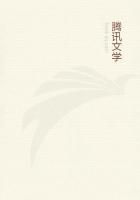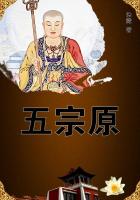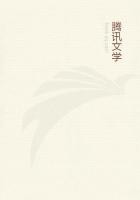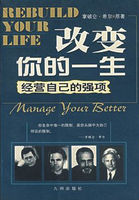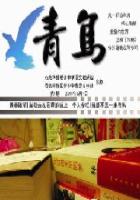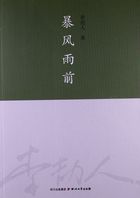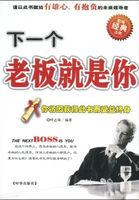In the course of his inquiries and arguments he felt it necessary to establish the belief in God--the one great thing from which all other questions radiated--by a new argument, and on firmer ground than that on which it had hitherto rested. He was profoundly devotional as well as logical, and original as he was learned.
Beyond all the monks of his age he lived in the contemplation of God. God was to him the essence of all good, the end of all inquiries, the joy and repose of his soul. He could not understand unless he FIRST believed; knowledge was the FRUIT of faith, not its CAUSE. The idea of God in the mind of man is the highest proof of the existence of God. That only is real which appeals to consciousness. He did not care to reason about a thing when reasoning would not strengthen his convictions, perhaps involve him in doubts and perplexities. Reason is finite and clouded and warped. But that which directly appeals to consciousness (as all that is eternal must appeal), and to that alone, like beauty and justice and love,--ultimate ideas to which reasoning and definitions add nothing,--is to be received as a final certitude.
Hence, absolute certainty of the existence of God, as it appeals to consciousness,--like the "Cogito, ergo sum." In this argument he anticipated Descartes, and proved himself the profoundest thinker of his century, perhaps of five centuries.
The deductions which Anselm made from the attributes of God and his moral government seem to have strengthened the belief of the Middle Ages in some theological aspects which are repulsive to consciousness,--his stronghold; thereby showing how one-sided any deductions are apt to be when pushed out to their utmost logical consequences; how they may even become a rebuke to human reason in those grand efforts of which reason is most proud, for theology, it must be borne in mind, is a science of deductions from acknowledged truths of revelation. Hence, from the imperfections of reason, or from disregard of other established truths, deductions may be pushed to absurdity even when logical, and may be made to conflict with the obvious meaning of primal truths from which these deductions are made, or at least with those intuitions which are hard to be distinguished from consciousness itself. There may be no flaw in the argument, but the argument may land one in absurdity and contradiction. For instance, from the acknowledged sinfulness of human nature--one of the cardinal declarations of Scripture, and confirmed by universal experience--and the equally fundamental truth that God is infinite, Anselm assumed the dogma that the guilt of men as sinners against an infinite God is infinitely great.
From this premise, which few in his age were disposed to deny, for it was in accordance with Saint Augustine, it follows that infinite sin, according to eternal justice, could only be atoned for by an infinite punishment. Hence all men deserve eternal punishment, and must receive it, unless there be made an infinite satisfaction or atonement, since not otherwise can divine love be harmonized with divine justice. Hence it was necessary that the eternal Son should become man, and make, by his voluntary death on the cross, the necessary atonement for human sins. Pushed out to the severest logical consequences, it would follow, that, as an infinite satisfaction has atoned for sin, ALL sinners are pardoned. But the Church shrank from such a conclusion, although logical, and included in the benefits of the atonement only the BELIEVINGportion of mankind. The discrepancy between the logical deductions and consciousness, and I may add Scripture, lies in assuming that human guilt IS INFINITELY great. It is thus that theology became complicated, even gloomy, and in some points false, by metaphysical reasonings, which had such a charm both to the Fathers and the Schoolmen. The attempt to reconcile divine justice with divine love by metaphysics and abstruse reasoning proved as futile as the attempt to reconcile free-will with predestination; for divine justice was made by deduction, without reference to other attributes, to conflict with those ideas of justice which consciousness attests,--even as a fettered will, of which all are conscious (that is, a will fettered by sin), was pushed out by logical deductions into absolute slavery and impotence.
Anselm did not carry out metaphysical reasonings to such lengths as did the Schoolmen who succeeded him,--those dialecticians who lived in universities in the thirteenth century. He was a devout man, who meditated on God and on revealed truth with awe and reverence, without any desire of system-making or dialectical victories. This desire more properly marked the Scholastic doctors of the universities in a subsequent age, when, though philosophy had been invoked by Anselm to support theology, they virtually made theology subordinate to philosophy. It was his main effort to establish, on rational grounds, the existence of God, and afterwards the doctrines of the Trinity and the Incarnation. And yet with Anselm and Roscelin the Scholastic age began. They were the founders of the Realists and the Nominalists,--those two schools which divided the Church in the twelfth and thirteenth centuries, and which will probably go on together, under different names, as long as men shall believe and doubt. But this subject, on which I have only entered, must be deferred to the next lecture.
AUTHORITIES.

